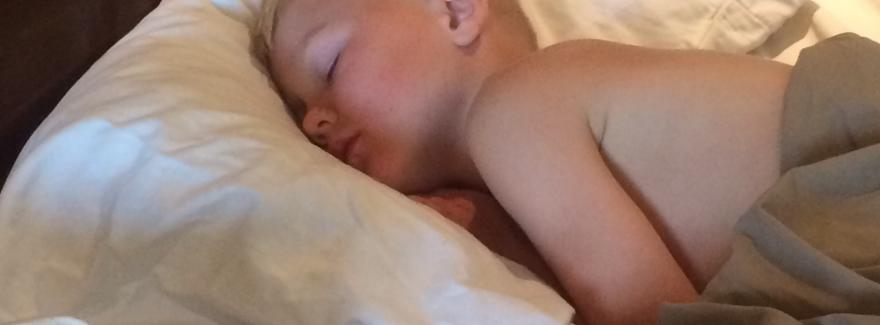
You cannot be truly healthy without getting adequate sleep.
Maybe you sleep soundly but wake up feeling unrested…
Maybe you rely on something like wine or sleeping pills to knock you out…
Maybe you wake up constantly throughout the night (to use the washroom or because your mind is racing) and can’t get back to sleep…
Or maybe you’re just plain sleep deprived.
Whatever the reason that you aren’t getting enough sleep, you will be able to benefit from the seven strategies I’m going to outline below.
Because if you aren’t sleeping, no matter how great your workouts are, how consistently you’re eating By Design, how often you’re getting your spine checked and corrected, your body is limited in how well it can recover, heal and thrive.
And one of the biggest culprits is stress (which we all have!)
Bad sleep is typically triggered by stress (worried about paying the bills, overwhelmed with your new job, under pressure because your kids aren’t performing well in school), which keeps you up at night thinking about it, which messes up how your body works the next day. You’re unfocused, in a brain fog, your emotions are a mess, and your immune system is weak. This poor function makes you more stressed, which leads to less sleep again that night.
And the vicious cycle continues…
Now that we know what’s likely preventing you from getting enough shuteye, lets talk about what you can do about it.
1. Set a sleep routine and stick to it. Yes, even on weekends! Wake up and go to sleep at approximately the same time every single day. This is easier to do if you create a morning and evening routine. In the morning do you joint-to-joint mobility, meditate or read. And in the evening journal, read with your kids or review your top three wins and challenges with your spouse.
2. Become good friends with the sun. If your sleep-wake cycle allows, let the sun wake you up and don’t sleep past sunrise. Also try to get some direct outside sunlight early in the morning each day. If you’re a shift worker you can “trick” your body’s natural circadian rhythm with a bright light (7,000-10,000 lux light is best) if you wake up when it’s dark out, and blue-blocking glasses if you’re going to sleep when it’s light out.
3. Minimize electronics after sunset and reduce your overall exposure to artificial light. I know I’m beating a dead horse here, but turn all electronics off before bed. Preferably, keep them off after sunset. Something as seemingly harmless as a digital alarm clock can affect your circadian rhythm, so if you have one in your room consider switching to an analog or covering it at night.
4. Pay attention to triggers that might be keeping you awake. Do you enjoy a glass of red wine with dinner, a late afternoon coffee or dark chocolate for desert? If you do, just be aware that alcohol and caffeine can affect your sleep. Either by knocking you out cold but waking you up in the middle of the night, or preventing you from falling asleep in the first place. You can also become dependent on these triggers and feel as if you can’t relax, unwind or fall asleep without just that one glass of wine or one square of chocolate.
5. Monitor your sleep. We love the app Sleep Cycle. This will help you identify where the real problems are, how much sleep you’re actually getting and at what point in the night poor sleep is happening. This will bring awareness to whether you have a hard time falling asleep, staying asleep or getting into deep sleep and a dream state referred to as REM-sleep.
6. Understand that you’re not designed to be a night owl. Having a lot of energy late at night is a sign that your circadian rhythm is out of whack. Normally, cortisol is high in the morning (you’re more alert) and low at night (you get tired). People who are under chronic stress from toxic and deficient lifestyles end up with a circadian rhythm that doesn’t function properly anymore. Yes, your body may be performing “ok”, but having a ton of energy at night isn’t how an optimally functioning body is supposed to work. If you’re a night owl, start gradually going to bed earlier to help shift your sleep-wake cycle.
7. Make sure you’re meeting all of your Life By Design requirements. Fueling your body with nutrient dense foods, moving often and maintaining a clear brain-body connection helps lower your stress, which helps with sleep. Also make sure you are taking the essential supplements; fish oil, probiotic and vitamin D. I also recommend supplementing with magnesium. Not to treat insomnia, but because most people are already deficient in it is difficult to obtain adequate amounts from food alone. Some of the benefits of magnesium are helping to decrease cortisol (your stress hormone), relax muscles and help you wind down at the end of the day. We recommend supplementing with 400-800 mg/day. Melatonin on the other hand is something I don’t recommend. It’s a hormone, which interrupts your body’s natural ability to produce it. And just like any other hormone supplementation or replacement, your body becomes dependent on it and becomes really bad at making it on it’s own. It’s also easy to become dependent on it.
I hope you found these seven strategies helpful.
If your sleep is struggling I would love to hear what strategy worked best for you. Comment below!
For more simple By Design recipes why not pick up your copy of the Eat By Design Cookbook. I’ve created it in the form of a 28-day meal plan (plus grocery lists!) so you don’t need to think about what’s for breakfast, lunch or dinner for the next month. Or you can grab the first 7 days FREE by clicking here.


